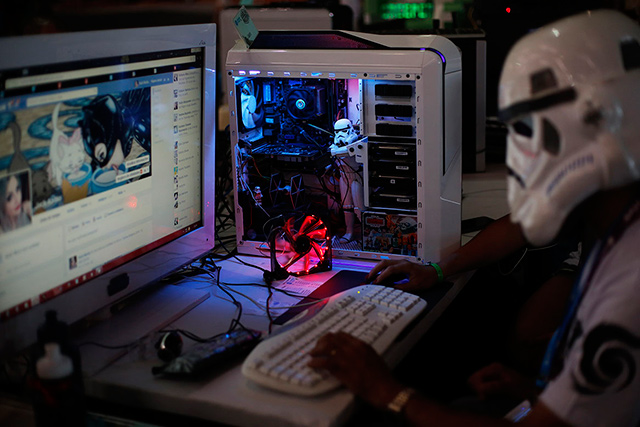Filtered By: Scitech
SciTech
Gamers are more social, successful than non-gamers – study

Still think video gamers are withdrawn loners or given to violence? Think again: a new study suggests otherwise.
The study commissioned by gameplay streaming site Twitch said the findings are "in stark contrast" to the stereotypes many people have had about gamers.
"So we set out to get to the truth. What did we find out? Gamers, as a group, are more social, successful, educated, socially conscious, and family oriented than their non-gamer counterparts. This is a statistically rigorous demographic study by some very smart folks, and it makes for good reading," Twitch said on its blog.
- 63% of Americans have played a game on a console, PC or mobile device in the past 60 days.
- Gamers are split fairly evenly by gender, with 52% male and 48% female.
- Gamers lead more social lives than non-gamers, with 57% saying friends are the most important thing in their lives compared to 35% of non-gamers.
- 82% of gamers say spending time with family is a top priority, compared to 68% of non-gamers.
- Gamers are more likely to hold a college degree or higher (43% vs. 36%). The same is also true for gamers’ parents (52% vs. 37%).
- Gamers are more optimistic and confident about their abilities and prospects for future success. 67% of gamers feel “very positive” or “positive” in this regard, only 42% of non-gamers say the same.
- Natural leaders: 61% of gamers say they are natural leaders, compared to 35% of non-gamers.
- More creative: 65% of gamers say they are more creative, compared to 43% of non-gamers.
- More conventionally successful: Gamers are more likely to be employed than non-gamers (42% vs 39%), and are more likely to say they are working in the career they want to be in (45% vs 37%)
- More socially conscious: 76% of gamers say they feel having a positive impact on society is important, compared to 55% of non-gamers.
Positive turn
The study also showed perceptions about games’ effects have "taken a positive turn."
"Educational games are increasingly being integrated into formal institutions like school and work as instructors and managers use them to engage students and hone the development of new skills," it said.
On the other hand, it said senior centers and retirement homes are turning to devices like Nintendo's Wii "to keep aging players active and their minds sharp."
Media change
The study also showed gamers are at the forefront of media change, "using the latest technology to consume content and connect to their peers."
It showed 59% of gamers watch more livestreaming content compared to last year while only 21% of non-gamers do so.
About 36% of gamers would watch a program through livestreaming than conventional TV, compared to 18% of non-gamers who would do so.
Meanwhile, Twitch noted a "rapidly changing" entertainment preference, where Twitch gained 45 million monthly users and one million active streamers in three years.
"For most players, gaming is a positive force in their lives... and it’s time that perceptions of gamers moved past tired stereotypes and were recalibrated to reflect this much richer reality," it said. — Joel Locsin/TJD, GMA News
More Videos
Most Popular




